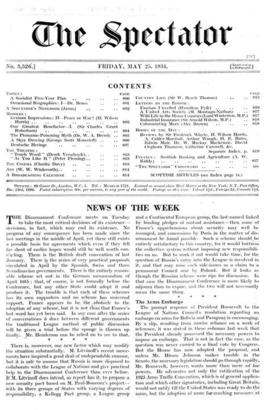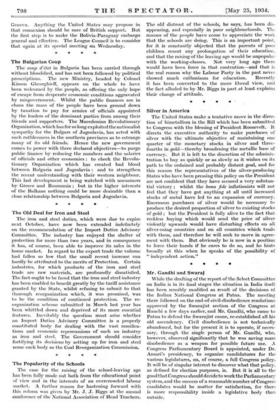The Arms Embargo The prompt response of President Roosevelt to
the League of Nations Council's resolution regarding an embargo on arms for Bolivia and Paraguay is encouraging. By a slip, resulting from unwise reliance on a work of reference, it was stated in these columns last week that the President already possessed the necessary powers to impose an embargo. That is not in fact the case, as the question was never carried to a final vote by Congress. But the House has now adopted the proposal, and unless Mr. Hiram Johnson makes trouble in the Senate, the necessary legislation should go through rapidly. Mr. Roosevelt, however,. wants more than mere ad hoc powers. He adyocates not only the ratification of the , • 1925 Arms Traffic Convention, which is of general applica- tion and which other signatories, including Great Britain, -Would not ratify till the United States was ready to do the same, but the adoption of more far-reaching measures at Geneva. Anything the United States may propose in that connexion should be sure of British support But the first step is to make the Bolivia-Paraguay embargo general and effective. The League Council is to consider that again at its special meeting on Wednesday.
* * *

















































